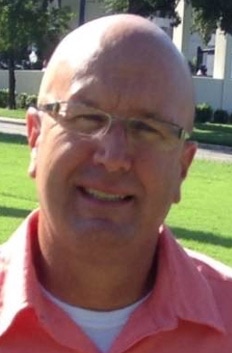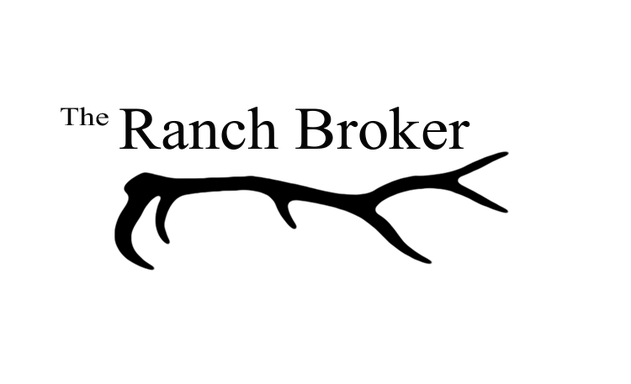- Home Page
-
Properties
-
Exclusive Properties
>
-
Sold Ranches
>
- Blanco County - 17 Acres
- Blanco County - 18 Acres
- Real County, TX 500 +/- Acres
- Blanco County - 35 acres
- Uvalde County - Frio 180
- Uvalde County - Frio 203
- Uvalde County - Nueces River 173
- Real County - Creek 463
- Real County - Frio - 1.44 Acres
- Real County - 21.5 Acres
- Sutton County - 519 acres
- Real County - Frio - 2.4 Acres
-
Exclusive Properties
>
- ABOUT
- Podcast
- Blog
- Ranch Services
|
What’s Old is New Again When It Comes to Cutting-Edge Ranching and Farming Del Ficke, Owner, Ficke Cattle Company Today’s independent ranchers and farmers confront a wide array of challenges to their survival. These include competition from large corporate producers; regulatory interference; soil erosion; dwindling water supplies; and the migration of our sons and daughters to more urban areas. Del Ficke has figured out a solution to these and other threats, and he has amply demonstrated them on his own land and with his family’s own livestock operation, which dates back to 1888. Del’s Succinct Answer: Farm and Ranch more like our grandfathers and great-grandfathers did. [To hear my RANCHCAST with LEM LEWIS interview with Del Ficke, click here.] Indeed, Del is an outspoken proponent of holistic ranching and farming. He travels the country advocating for simpler, more earth-friendly methods of managing rural land, crops, and cattle. That includes utilizing no-till farming; planting cover crops; implementing ultra-high density grazing; forging stronger local communities; resisting government incentives to expand and grow crops for export; and avoiding getting sucked into the vortex of always investing in the next product or service because some salesperson says you should or because others around you are doing it. “Question everything,” Del advises. “Question why we need this vaccine for this cow; why do we need this piece of machinery; why can’t we get by [with what we already have]?”
Fifteen years ago, Del was farming 7,000 acres that spanned 92 miles, end-to-end. It was back-breaking work. Literally. A Regenerative Approach Del underwent a series of back surgeries which forced him to rethink how he managed his land and what he wanted to do with his life. The transition wasn’t immediate, but over the past decade Del has instituted a regenerative approach to ranching that has been a huge success – both financially, and in terms of quality of life. Today, Del, owner of Ficke Cattle Company in Pleasant Dale, Nebraska, is running nearly the same number of cows that he did at his peak, only now he’s doing it on less than 1,000 acres – blessed with rolling hills, good soils, and enough rain. “I’m doing a lot of things like my grandpa and great-grandpa did,” explains Del, who lives in the house that his great-grandfather, H.F. Ficke, built. “We’re 70% more profitable than we were when we were farming all those acres,” he adds, noting that now he has time to catch his breath, enjoy life, and go fishing. “They’ve done this in the past, and it’s just the new phase,” Del says. “But it’s going to be the phase that saves us.” Del no longer works strictly for his own profit and benefit. His methods, he notes, are also essential to help manage soil erosion, conserve water, promote biodiversity, and support wildlife. Just one example is his shift from using a conventional corn-soybean-wheat rotation, where he’d disk or chisel in the fall after the crops were harvested and then in the spring work the land again a couple of times with a variety of equipment. Instead, Del went to a no-till method of farming that incorporated planting cover crops, supplemented with limited spraying of the weeds. Over the next decade, as a result, the organic matter in the soil in one particular field went from a concentration of 2.6 to 6.9. Moreover, the field retains a very impressive 13 inches of water per hour after a healthy rain because the soil is so saturated with earthworms and other organic matter. This Will Save Us Del points out that he didn’t invent the method, noting that farmers were already using cover crops more than one hundred years ago. “When my dad was a kid, they called it ‘green manure,’” he recalls, growing clover or rye, for example, then plowing it under in the spring. “They’ve done this in the past, and it’s just the new phase,” Del says. “But it’s going to be the phase that saves us.” Del’s passion and mission include finding incentives to keep his children – and the children of other farmers and ranchers – committed to their land and heritage. Making the land more profitable and sustainable is certainly one such incentive. Whenever possible, Del eliminates the middle-man, selling directly to the end-user and keeping more of the profits for himself and in his community. While his ancestors focused primarily on livestock, Del and his family have branched into a variety of related business ventures. Today’s operations include:
Bees, Chickens and Welding Del embraces the need to be creative and flexible in the ways that ranchers and farmers utilize their land. On his property, for example, his son – who has no interest in running cows – has built a welding business, working from an on-site fabrication shop. “His shop makes more money than my cows ever are going to make,” Del says, noting that his son’s home is only 20 feet from his own house. Besides welding, Del’s son also plans to own some chickens. Del encourages young people to go see the world, as he did, then return to their roots to do their own thing, which could be farming and ranching, or could be welding or other business ventures. “But make sure they come back,” he emphasizes. “And make darn sure that they feel like they’re appreciated coming back.” Besides his son’s fabrication shop, Del has also made accommodations on his land for a beekeeper to maintain hundreds of bee boxes. The arrangement not only provides Del a valuable tenant; the bees have proven to be efficient pollinators of his nearby crops. “We have the best soybeans and the best alfalfa I’ve ever had,” Del says, adding that because of the bees, he no longer needs to spray. In his nationwide travels as a consultant, Del sees many other families turning to holistic methods, both as a way to remain financially viable and independent in the wake of declining cattle and grain prices, and as a means to bring their children back. “But make sure they come back,” he emphasizes. “And make darn sure that they feel like they’re appreciated coming back.” “Now everybody is talking to us, the guy who has 15 acres and the guy who has got 30,000 acres,” he says. Del’s consulting is focused on helping ranchers and farmers reduce expenses, earn more, and preserve and enhance the quality of their land. “You know I want everybody to be profitable,” Del says. Beyond that, Del is working toward a day when small-town America is once again vibrant. While Del admits most people think he’s crazy to believe we’ll ever see the resurgence of small towns, he’s committed to trying, working at the grassroots level in the belief that if he can show one family how to make modern ranching or farming work, the lessons will spread to other families, and entire communities. “Our motto,” he says, “is one farm, one ranch, one family, and one community at a time.”
0 Comments
Leave a Reply. |
Archives
October 2019
Categories |
Mailing Address1761 East R.R. 473
Blanco, Texas 78606 Lem Lewis - Broker 210-275-3551 l[email protected] © 2016 ALL RIGHTS RESERVED - The Ranch Broker |
Connect with UsKeep up with new listingsJoin our mailing list to receive information
about new listings. |
- Home Page
-
Properties
-
Exclusive Properties
>
-
Sold Ranches
>
- Blanco County - 17 Acres
- Blanco County - 18 Acres
- Real County, TX 500 +/- Acres
- Blanco County - 35 acres
- Uvalde County - Frio 180
- Uvalde County - Frio 203
- Uvalde County - Nueces River 173
- Real County - Creek 463
- Real County - Frio - 1.44 Acres
- Real County - 21.5 Acres
- Sutton County - 519 acres
- Real County - Frio - 2.4 Acres
-
Exclusive Properties
>
- ABOUT
- Podcast
- Blog
- Ranch Services


 RSS Feed
RSS Feed
